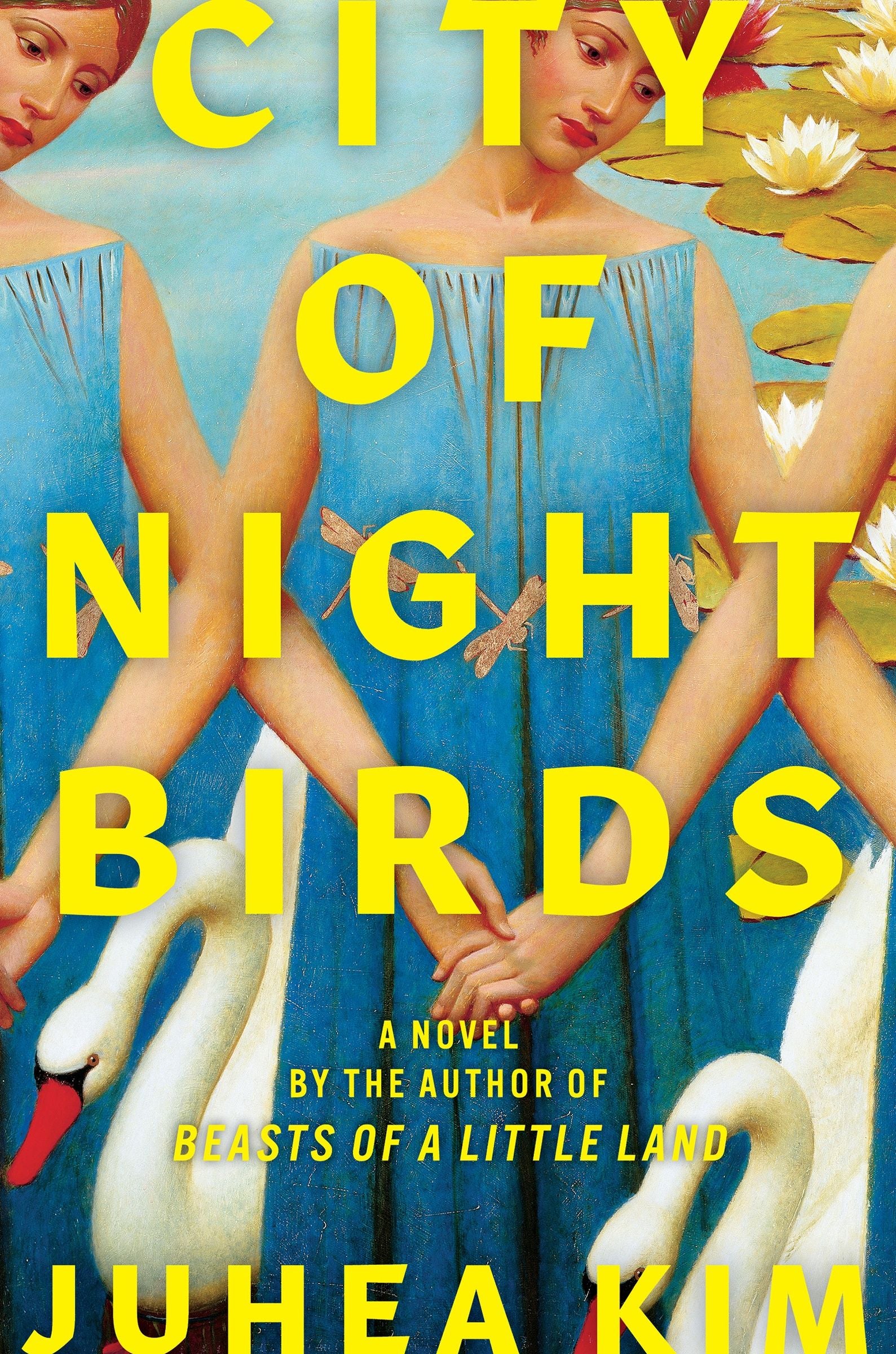 There is an uncanniness to returning home after a long absence. Memories walk the streets. The past crowds out the present. It is what you have been longing for and the realization that what you’ve longed for is gone all at once.
There is an uncanniness to returning home after a long absence. Memories walk the streets. The past crowds out the present. It is what you have been longing for and the realization that what you’ve longed for is gone all at once.
On a blazing White Night two years after a devastating accident has shattered her career, Natasha Leonova finds herself returning to the city where she rose from obscure poverty to become one of the world’s premier ballerinas. Lost in a fugue of drugs, alcohol and depression she finds herself stumbling into her past, all the more so when the man she blames for her unraveled life offers her a chance to return to the stage.
In City of Night Birds, Juhea Kim plunges us into the intimate, ruthless world of professional ballet. From Natasha’s girlhood at a prestigious St. Petersburg ballet school to the vicious egos and ironclad traditions of Moscow’s famed Bolshoi to the elitest world surrounding Paris Opéra, we see her life unfold with moments of breathtaking beauty that blend inexorably with a devouring darkness.
As Natasha begins the painful process of repairing her body in preparation for her comeback performance, her mind appears to fracture further. Paranoid and erratic, birds seem to flock around her and she wonders if she’s being followed. Her grip on the present is tenuous. Her past shimmers to life, leaving her wandering, struggling to grasp what is real.
In this way, the narrative spins backwards and we learn of her troubled relationship with her often distant, heartbroken mother, her early friendships forged through blistered feet and freezing showers, and the cost of the ambition that allowed Natasha to soar above every dancer of her generation. From the beginning, her relationship with dance is characterized by a perverse need to prove others wrong. The more she is discounted, the better she becomes. It is the challenge she lives for, the need to give everything to the dance.
Natasha’s life is as dramatic as any Giselle’s or Odette’s, and you can’t have a ballet without a villain. Hers is Dmitri Ostrovsky, who takes a sneering dislike to her from her first misstep in a Bolshoi practice room. Another fiercely talented dancer, he seems to have dripped poison on her career at every opportunity and yet, it is Dmitri who has offered her a chance to prove herself once again on her return to St. Petersburg. Has he in his own cynical way been giving her the challenge he knows she thrives on all along?
The novel is infused with a bitter blend of regret and nostalgia. As the opening night of her return performance draws near, Natasha struggles to repair old friendships and to reconcile with her own past. Natasha longs for the days when a pirouette was as simple as breathing. She grieves for her mother and the pain she’s caused others, and yet her pride remains marrow deep. She can’t imagine another way of living. The price has been high, but to her, it has been fair.
In Natasha we find a woman flawed and fragile. She contains all the boldness of a true bravura ballerina, connecting with her audience through a display of deep, vulnerable emotion on stage, while in her own life she is often cold and detached, incapable of showing the emotions that actually belong to her. This leaves her in a sort of perpetual mourning, as if she were just another character in the ballet swept off to the land of the shades, extinguished with the fall of a curtain.
These fleeting moments, when her body isn’t hers but a thing of pure ballet, are stunningly captured. We can feel her ecstasy, but we also feel the devastating crash back to earth and the anguish of having to return to do it all again tomorrow. Kim vividly captures the brutal cycle of this transient art form. The endless striving for a perfection that lasts a single moment.
The cost of art and the value of it are constant concerns here. Natasha herself wonders what is the point of dancing when the world is on fire. It seems self-indulgent at best. Yet, despite all the petty power-struggles and ruthless betrayals, there is a hypnotic beauty and we cannot deny the dance’s power. There is no easy answer here, and perhaps that is the real purpose of the ballet—to remind us that love and hate, beauty and darkness, life and death, are all inextricably intwined in a never-ending dance.
With the meticulous pacing of a pedagogue, the past and present storylines reach their inevitable intersection in a resounding curtain call. Will all the pain and betrayal of the past once again push Natasha to new heights? Or will the stage at last devour her? By turns surreal and stark, City of Night Birds beautifully renders a world of triumphant nights, filled with shadows and golden light, shocking cruelty and the weightless freedom of a soaring bird.
Publisher: Ecco
Publication date: November 26, 2024
Reviewed by B.B. Garin
B. B. Garin is a writer living in Buffalo, NY. Her story collection, New Songs for Old Radios, is available from Wordrunner Press. She is a recipient of the Sara Patton Fiction Stipend from The Writer’s Hotel. Her work has appeared in The Hawai’i Pacific Review, Luna Station Quarterly, Palooka, 3rd Wednesday, Crack the Spine, and more. Connect with her @bb_garin or bbgarin.wordpress.com.
